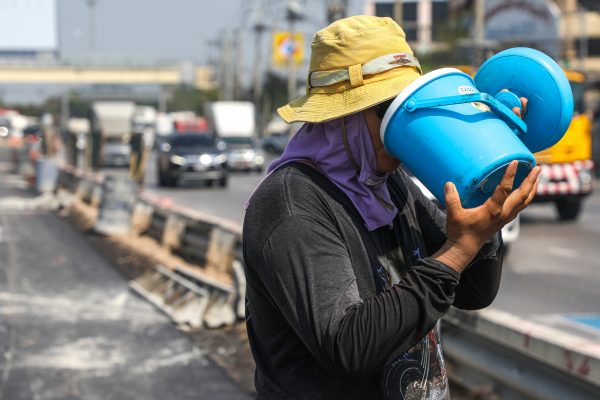Thailand to start human trials of locally developed COVID-19 vaccine in March

Thailand will begin the first stage of human trials in March of a new COVID-19 vaccine, which has been developed jointly by the Faculty of Tropical Medicine of Mahidol University and the Government Pharmaceutical Organization (GPO), Public Health Minister Anutin Charnvirakul told the media on Wednesday.
He said that the vaccine was developed in the middle of last year and put on animal trials, the results of which indicated a satisfactory ability to stimulate immunity in the test subjects, adding that the next step is human trial of the vaccine candidate.
After the completion of three phases of clinical trials, the developers will seek approval for the vaccine from the Food and Drug Administration, after which it will be produced locally by a Thai firm.
Siam Bioscience already has the British technology to produce the AstraZeneca vaccine, said the public health minister.
Public Health Permanent Secretary Dr. Kiatipoom Wongrachit, meanwhile, stressed that the GPO has extensive experience in producing anti-flu vaccines and plans to produce COVID-19 vaccines, in cooperation with the Faculty of Tropical Medicine of Mahidol University and with support from the US-based Program for Appropriate Technology in Health (PATH), which has provided vaccine precursors, free of charge, for first and second phase studies.
Dr. Veerapong Poomirattanaprapin, dean of the Faculty of Tropical Medicine, said their Tropical Medicine Centre has over 30 years of experience in conducting tests on several vaccines, such as those used to prevent cervical cancer, bird flu, dengue fever, seasonal flu and HIV.
He said that the human trials in March will be conducted on several groups of Thai volunteers, who will be given either the candidate vaccine or a placebo.
The subjects who show good results will be kept for the second stage of human trials, he added.
Dr. Pannee Pitisutthitgan, chief of the Tropical Medicine Department, said that the advantage of the vaccine is that it can be stored at 2-8oC.
The human trials will be in three phases. The first will use 210 volunteers and it will take up to 2 months to determine the appropriate vaccine dose. In the second phase, two of the most optimum dose sizes, identified in phase one, will be used on 250 volunteers and it is hoped that phases one and two will yield sufficient data to move to the third and final phase by the end of this year, said Dr. Pannee.






